
Episode 351: Powerfleet
Scott Walker, VP of Supply Chain Product Management at Powerfleet, joins The New Warehouse podcast to discuss their people-powered IoT

Scott Walker, VP of Supply Chain Product Management at Powerfleet, joins The New Warehouse podcast to discuss their people-powered IoT

The New Warehouse welcomes Evan Hertafeld, Co-Founder of A2Z Drone Delivery. A2Z Drone Delivery develops cutting-edge technology to provide tailored

The New Warehouse welcomes fellow podcasters Dan Coll and Ninaad Acharya to the show to discuss their backgrounds and how

The New Warehouse podcast is excited to welcome Kristin Toth, the president and COO of Fernish. Fernish is a unique

Dr. Ilan Cohen, the Chairman, and CEO at Caja Robotics, returns to The New Warehouse to discuss robotics solutions for

The New Warehouse welcomes Tony Ingham, Product Owner at Fulfilld, for our first podcast of 2023. Fulfilld is a leading

In addition to being generous booth neighbors with snacks and coffee, eThium offers a wide range of lithium-ion technology solutions
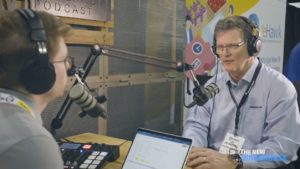
Universal Robots joins this week’s episode of The New Warehouse podcast to discuss how their robotic solutions improve the world

This week’s episode of The New Warehouse brings you John O’Kelly, President and Founder of Newcastle Systems. Newcastle Systems provides

Loftware is a software company that has been around for 35 years and specializes in label operations. Josh Roffman, SVP

Live from the booth at MODEX, Berkshire Grey joins this episode of The New Warehouse to discuss some of their

In this bite-size episode of The New Warehouse, Michael Hansen, Co-founder and Managing Director at ROEQ, joins Kevin to discuss

CEO and founder of HomeRoots, Gil Bar-Lev joins this week’s episode of The New Warehouse to discuss offering a business-to-business
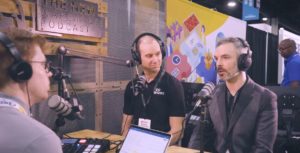
The New Warehouse Podcast welcomes Stephan Dumont and Jean-Francois Marchand from UgoWork. Based out of Canada, UgoWork manufactures lithium-ion batteries
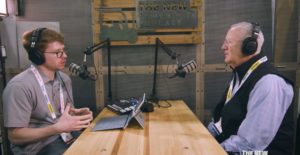
Kindred, part of Ocado Group, joins The New Warehouse podcast at MODEX 2022 to share how their robotics solutions improve
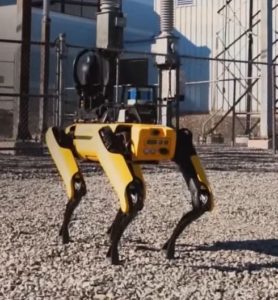
Perhaps you know Boston Dynamics from their viral videos of dancing robot dogs or their humanoid robot that moves with

If you want to scale your business or add tools to your warehouse, you will want to tune in to
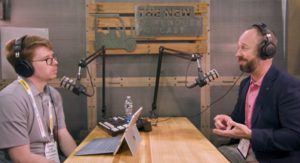
Live from MODEX 2022, Joe Rooney, Executive Vice President at Baker Industrial Supply & Anchor Manufacturing, joins The New Warehouse

On this week’s episode of The New Warehouse Podcast, we welcome Amir Bousani, Co-Founder and CEO of RGo Robotics. RGo

On this special episode of The New Warehouse Podcast, we get an education on Lithium 101 with Robin Schneider, Director